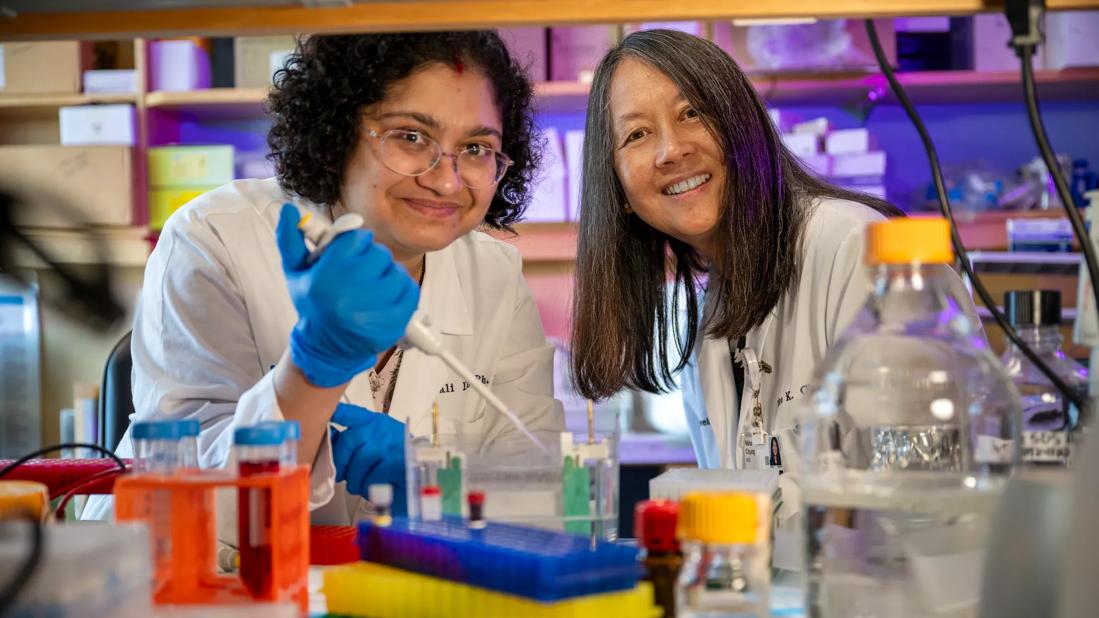A recap of what’s known, and guidance for patients today

Image content: This image is available to view online.
View image online (https://assets.clevelandclinic.org/transform/0512b078-c377-456f-9cde-42877cc4ad80/LRI_4800616_04-15-24_065_DG)
Mina Chung Lab
Advertisement
Cleveland Clinic is a non-profit academic medical center. Advertising on our site helps support our mission. We do not endorse non-Cleveland Clinic products or services. Policy
There is so much we need to learn quickly in this devastating COVID-19 pandemic caused by the second known severe acute respiratory syndrome coronavirus (SARS-CoV-2). We are struggling to understand the epidemiology, the predictors of susceptibility to severe complications and mortality, and whether there are modifiable risk factors that may prevent or alleviate the severity of disease.
Among the many unanswered questions is one that’s particularly clinically relevant to cardiology practice: Are angiotensin-converting enzyme inhibitors (ACEIs) and angiotensin II receptor blockers (ARBs) helpful or harmful in this setting?
The question arises because of evidence from animal models studied after the 2003 SARS outbreak. SARS-CoV was the coronavirus that caused that outbreak; SARS-CoV-2 is the virus causing the current pandemic disease COVID-19.
SARS-CoV and SARS-CoV-2 both have spike proteins that give the appearance of a “corona” around the virus. The receptor for this spike protein is angiotensin-converting enzyme 2 (ACE2). SARS-CoV-2 binds even more tightly to ACE2 than did SARS-CoV. As yet, there are no clinical data or randomized clinical trials demonstrating either benefits or adverse outcomes with background use of ACEIs or ARBs in COVID-19 patients, with or without cardiovascular disease.
While we await data, the American Heart Association, the American College of Cardiology and the Heart Failure Society of America issued a joint statement on March 17 recommending continuation of ACEIs, ARBs and other renin-angiotensin-aldosterone system (RAAS) antagonists in patients who are currently taking them for proven indications, including heart failure, hypertension and ischemic heart disease.
Advertisement
For such patients who are diagnosed with COVID-19, the societies advise that treatment decisions should be individualized based on the patient’s hemodynamic status and clinical presentation. This is sound advice, including their conclusion: “[B]e advised not to add or remove any RAAS-related treatments, beyond actions based on standard clinical practice,” until more data have been collected.
Here at Cleveland Clinic, we are launching a COVID-19 registry to collect data that will include medication use and outcomes. We hope other U.S. centers will do the same, as well as centers in Asia, Europe and around the world. Multipronged and multidisciplinary collaborations have been formed to expedite basic, translational and clinical research.
As for potential therapeutics, a vaccine could be developed that would block the spike protein-ACE2 interaction sites. Antibodies or small molecules could be developed that target the spike protein/ACE2 interaction. Soluble ACE2 may competitively bind to the spike protein. A serine protease inhibitor called camostat mesylate is approved in Japan for treatment of chronic pancreatitis and postoperative reflux esophagitis. That agent blocks TMPRSS2, a serine protease that primes SARS-CoV-2 for binding to ACE2 and cell entry. A group in Germany is currently studying camostat mesylate as a potential treatment for COVID-19.
There is reason for optimism in that we will soon know much more about both negative and positive effects of various drugs on COVID-19, and hopefully we will soon have more to offer patients to combat this scourge. This devastating pandemic has united clinicians and researchers around the world through rapid sharing of experiences, information and collaborations that we hope can help us better survive this and future pandemics.
Advertisement
Dr. Chung is a staff cardiologist in Cleveland Clinic’s Department of Cardiovascular Medicine and a researcher in the Department of Cardiovascular and Metabolic Sciences in Cleveland Clinic Lerner Research Institute.
Advertisement
Advertisement
Patients report improved sense of smell and taste
Clinicians who are accustomed to uncertainty can do well by patients
Unique skin changes can occur after infection or vaccine
Cleveland Clinic analysis suggests that obtaining care for the virus might reveal a previously undiagnosed condition
As the pandemic evolves, rheumatologists must continue to be mindful of most vulnerable patients
Early results suggest positive outcomes from COVID-19 PrEP treatment
Could the virus have caused the condition or triggered previously undiagnosed disease?
Five categories of cutaneous abnormalities are associated with COVID-19